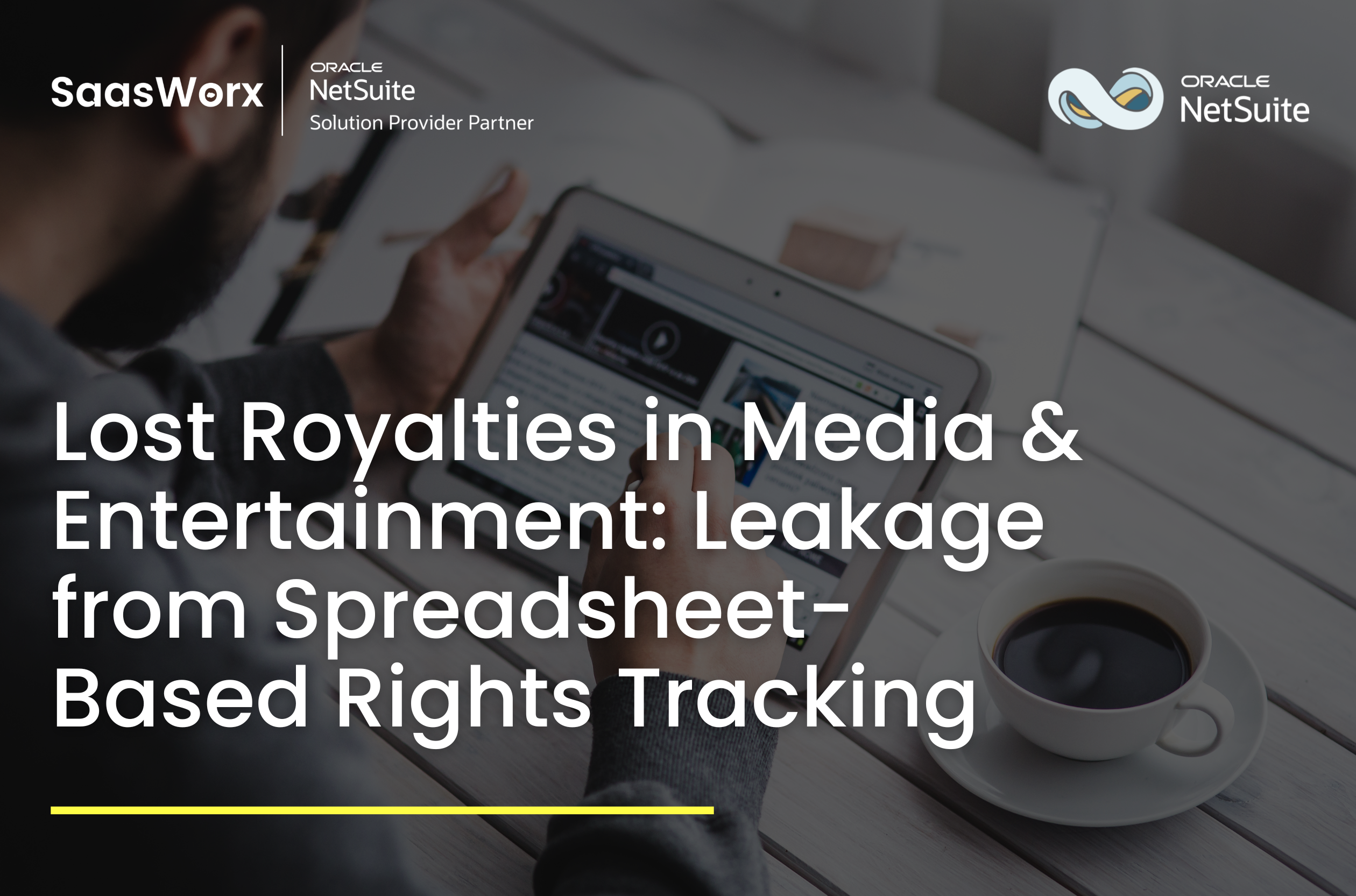

In many Indian tech and media companies, royalties and licensing fees are tracked in spreadsheets — and that can hide big problems. Studies find over 90% of complex spreadsheets contain errors. A single typo or missing entry can mean thousands of rupees go uncollected. As one NetSuite ERP Consulting expert observes, CFOs and controllers often find themselves “struggling to manage increasingly complex royalty or licensing agreements using spreadsheets.” In an era of streaming and digital distribution, those manual methods risk serious underpayments.
Spreadsheet tracking feels easy at first, but it breaks down fast. Common pitfalls include:
These issues affect more than just entertainment. Tech firms licensing software, e-commerce companies sharing revenue, and even publishers face similar gaps if they stay in Excel. With 100 million songs on streaming platforms, India’s IPRS warns that “traditional methods of royalty tracking have become outdated”. In any industry, unchecked spreadsheets can leave a chunk of revenue on the table.
The financial impact can be huge. For instance, India’s music society IPRS reported a record ₹600 crore distribution in 2024–25, but notes that inconsistent data still causes “misattribution” and lost payments. Creators and companies may wait months (or years) to see money owed.
Real-world examples show small errors multiply into big losses. A Mumbai film distributor discovered one territory’s streaming revenue was never logged — a single missing row in a spreadsheet cost lakhs of rupees. A software publisher found partner commissions underreported by 15% for a year due to a copy-paste mistake. An ad agency realized a license fee clause was left out of its Excel model, costing them an entire bonus. In each case, tiny mistakes ended up costing a fortune.
Consider a Pune-based music label using Excel to track song plays. If someone forgets to input data from a new streaming service, a full 20–30% slice of revenue vanishes. It often goes unnoticed until royalty statements are prepared – by then the money is gone. Such “royalty leakage” is all too common.
Modern tools can eliminate these risks. Companies that move to centralized rights-management software report big gains. Key steps include:
Consultants at SaasWorx note that these changes often pay for themselves. A one-time setup of an automated royalty engine, backed by AI + ERP integrations, often uncovers enough hidden income to cover its cost. More importantly, it frees finance teams to focus on strategy instead of wrestling spreadsheets.
Spreadsheets are familiar, but in today’s digital economy they have become a liability. Every rupee counts, and spreadsheet errors can divert income into the void. By shifting to modern rights-tracking methods – from better metadata to automated royalty systems – Indian companies can seal those leaks. As experts stress, better technology means fair compensation for creators and secure profits for businesses. Better tracking is now essential for protecting revenue and maintaining trust in any content-driven business.